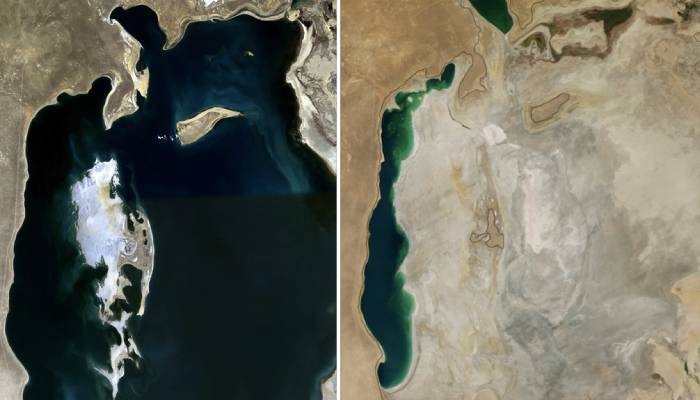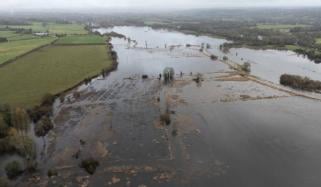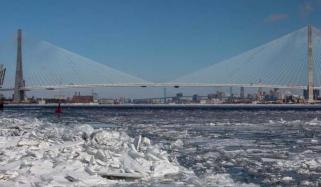
The Caspian Sea, the world's largest inland body of water is gradually shrinking in a shocking manner.
It is also described as the world's largest lake and usually referred to as a full-fledged sea.
The sea is located between Europe and Asia, bordering Azerbaijan, Russia, Kazakhstan, and Iran. A specific area of Absheron National Park, the shoreline has moved 200 meters away from where it once was.
Elana Alizade, who used to play on other beaches around Baku expressed deep sorrow on this situation. She told Sky News, “It is sad… even heartbreaking sometimes.”
She went on to share, “This is the place where as a kid we first discovered what biodiversity is, where we first saw snakes. We used to see turtles, different kinds of birds. We used to play with sand."
"And they were very narrow beaches. Now it's like we are in a different land,” Elana added.
Water levels in the Caspian Sea, lying below sea level, have always fluctuated due to tectonic shifts that modify the shape of the basin.
Since 1996, the water levels have been declining almost continuously, with a faster drop since 2006.
Until recently, scientists were puzzled by the rapid decline of water levels. Now they have identified the signs of climate change.
Rising air temperatures and changing wind patterns are causing more water to evaporate from the surface of the sea.
Fisheries are already suffering, agriculture is being affected by the increasing salinity and the critically endangered Caspian seal is at risk of extinction.
Various studies predict that by 2100, the Caspian Sea’s water levels could decrease by 9 to 18 meters.















